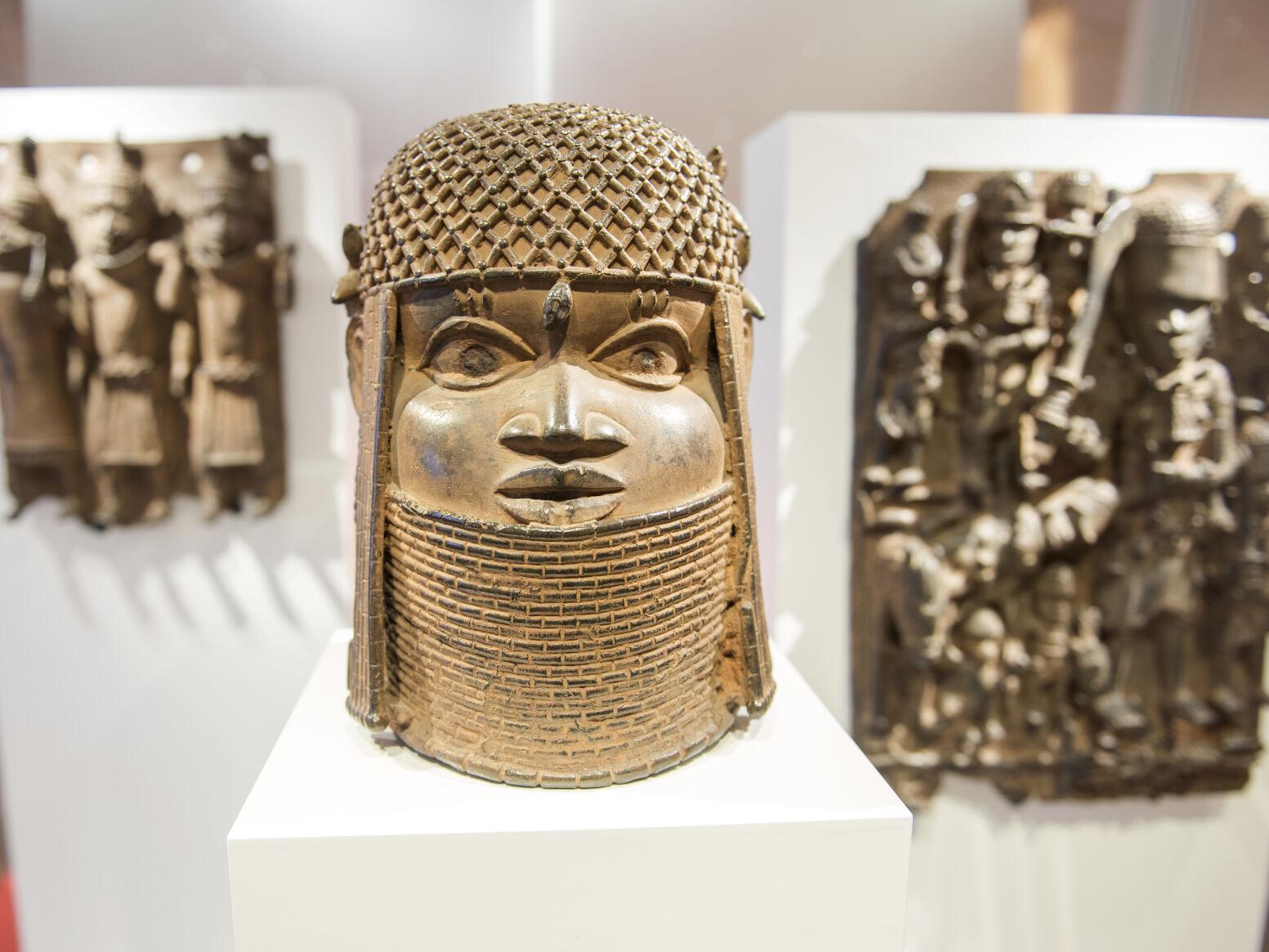Germany has concluded plans to return 440 of Benin Bronzes that were looted 125 years ago by a British colonial expedition and subsequently sold to collections around the world, including German museums, Berlin authorities disclosed yesterday.
Germany’s Foreign Minister Heiko Maas welcomed a deal reached with museums to work on a plan for the restitution of the artifacts together with Nigeria, calling it a ‘turning point in dealing with our colonial history.’
According to the Minister of Culture in the country, Monika Gruetters, the Benin Bronzes were a key test for the way the country deals with its colonial past.
‘We are confronting our historic and moral responsibility,‘ she said.
Read Also: How Britain Invaded And Concurred The Ancient Benin Kingdom
Gruetters said the goal is to contribute to “understanding and reconciliation” with the descendants of those whose cultural treasures were stolen in colonial times. The first returns are planned for next year, she said.
A British colonial expedition plundered vast numbers of treasures from the royal palace of the Kingdom of Benin in 1897, including numerous bas-reliefs and sculptures. Many of the artifacts ended up in the British Museum, though hundreds were also sold to other collections.
The Ethnological Museum in Berlin has one of the world’s largest collections of historical objects from the Kingdom of Benin, estimated to include about 530 items, including 440 bronzes.
The University of Aberdeen and Lambeth Palace, the London residence of the Archbishop of Canterbury, are among the British institutions which have so far announced their intention to send back their Benin Bronzes.
The Scottish university claimed that the bronzes had been seized in ‘reprehensible circumstances.’
That decision put pressure on the British Museum, which holds hundreds of pieces, to follow suit.
Late last year, France approved the restitution of 26 items from the Kingdom of Benin.
Britain’s Acting Consul-General in the Niger Delta, James Phillips had, in December 1896, embarked on an expedition to depose the then Oba of Benin Ovonramwen, because he had “reason to hope that sufficient ivory would be found in the King’s house.”
Phillips, in a letter to Lord Salisbury, the Foreign Secretary, intended to use the funds realized from the ivory to ‘pay the expenses incurred in removing the King from his stool.’
He was accompanied by a medical officer, two trading agents, and about 250 African soldiers masquerading as porters.
AFRICA TODAY NEWS, NEW YORK
